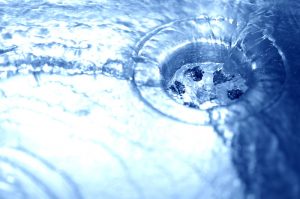 There are a lot of different problems that can afflict plumbing systems across the country, from leaks to frozen pipes. One common problem that many homeowners have in their plumbing systems, and which most of them are not even aware of, is limescale. Limescale is the result of hard water exposure, a common issue that may start small, but can become quite a bit larger as time goes on. Though it isn’t a threat to you personally, it can cause a lot of problems for your plumbing system’s health and efficiency. Have a look at how hard water causes limescale, how to identify it in your home, and what to do about it if you find it.
There are a lot of different problems that can afflict plumbing systems across the country, from leaks to frozen pipes. One common problem that many homeowners have in their plumbing systems, and which most of them are not even aware of, is limescale. Limescale is the result of hard water exposure, a common issue that may start small, but can become quite a bit larger as time goes on. Though it isn’t a threat to you personally, it can cause a lot of problems for your plumbing system’s health and efficiency. Have a look at how hard water causes limescale, how to identify it in your home, and what to do about it if you find it.
Lime Scale Formation
Hard water is water with high amounts of magnesium and calcium particles in it. As it flows through the plumbing pipes, it deposits these minerals on the walls. Over time, the mineral deposits will grow into limescale. Limescale restricts the flow of water through the pipes over time, reducing the efficiency of the system. If it’s not caught and removed quickly enough, it will harden and become impossible to remove without damaging the pipe. This often leads to pipe replacement, which is expensive and time-consuming.
How to Determine if You Have a Lime Scale Problem
Without professional equipment, it can be tough to properly evaluate whether or not you have a major limescale problem. There are certain signs, though, that indicate you should have your plumbing system professionally evaluated. The first sign is a drop in water pressure over time. This could indicate a leak in the system, as well, but it is equally likely that you have a blockage forming in the pipes.
The second sign you should look for is that of visible limescale in other areas of the home. Limescale doesn’t just form in the pipes. It can form in any area that is regularly exposed to hard water. If you see a white, chalky substance in your tub, around your faucet, or in your sink, that’s limescale. If you have it in those areas, you almost certainly have it in your pipes.
Water Softeners
The best way to treat limescale is to prevent exposure to hard water from entering your plumbing system in the first place. The way you do that is by installing a water softener in your home’s plumbing system. A water softener is a water treatment system that sits in the home’s water line. As water flows through the system, it removes the magnesium and calcium particles in it to “soften” it. The treated water will not form limescale in your pipes, saving you a lot of money and frustration.
Performance Plumbing provides comprehensive water softener installation services throughout St. Louis, MO. If you need a water softener installed in your home, contact us today to schedule an appointment. We’ll make sure that your plumbing system is properly protected from limescale.
